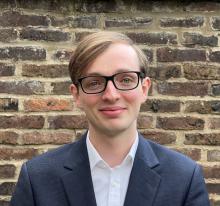
Identification, Polarization, and Their Behavioral Consequences.
The Rohatyn Center for Global Affairs program on Global Economics presents “Identification, Polarization, and Their Behavioral Consequences” with Luca Henkel, Postdoctoral Scholar, University of Chicago and University of CEMA.
Virtual Middlebury
Open to the Public
